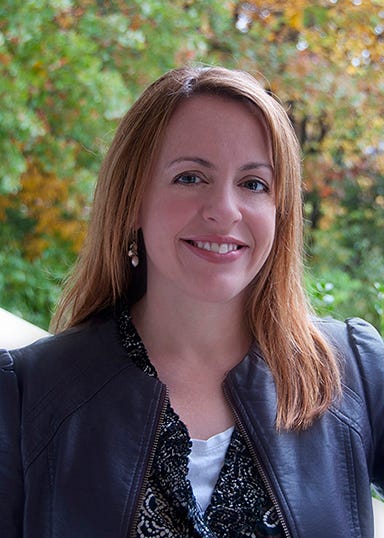News from Medium
By Tom Quaife on October 11, 2017
[av_hr class=’invisible’ height=’1′ shadow=’no-shadow’ position=’center’ custom_border=’av-border-thin’ custom_width=’50px’ custom_border_color=” custom_margin_top=’10px’ custom_margin_bottom=’10px’ icon_select=’yes’ custom_icon_color=” icon=’ue808′ font=’entypo-fontello’ av_uid=’av-1cu3cto’]
Christy Slay, researcher at The Sustainability Consortium and the University of Arkansas, is facilitating discussions between farmers, processors and retailers over sustainability, which is a good thing for exports.

Much of the tour of a dairy farm took place in the morning before it got really hot outside. Still, whenever sustainability researcher Christy Slay stepped off the air-conditioned bus to see more of the dairy farm, the sun was a factor.
Slay was glad to get in the shade — and a little envious of the cows that were in well-ventilated barns with fans and misters providing evaporative cooling.
The heat made an impression. But a story the dairy farmer told that day made an even bigger impact.
The farmer felt he was doing all he could to make his farm sustainable, using water and energy resources wisely. He had even installed solar panels to save on energy cost. His sustainability efforts caught the attention of a large international food company that was sourcing his milk. The company sent some representatives out to his farm, and the farmer spent six hours showing them around and answering questions. He took a survey.

But the farmer never heard back from the company. He spent all of that time giving away information and didn’t get anything out of it, which was frustrating.
Slay understood his frustration when the communications loop wasn’t closed because it illustrated the need for continued improvement with proper feedback. “Sustainability should be easier for the farmer and he should get feedback,” she said.
As research director at The Sustainability Consortium (TSC) at the University of Arkansas, Slay knows that a more sustainable supply chain — with good communication between farmers, processors and retailers — can boost the United States’ standing as a dairy-exporting nation.
The Sustainability Consortium’s mission is to partner with leading companies and nonprofits to define, develop, and deliver more sustainable products.
Reducing dairy’s carbon footprint
Arkansas is not a big dairy state and exports account for only $4 million in economic impact, much less, for example, than the $1.9 billion ripple effect of dairy exports in California.
The U.S. dairy industry has made great progress in reducing its “carbon footprint” (methane and carbon dioxide emissions) over the years because fewer and fewer cows are needed to produce the same amount of milk―thanks to genetic progress and more efficient production practices.
It has also been a guiding principle of the U.S. dairy industry to use natural resources in a responsible manner.
Continued improvement will be needed for the U.S. dairy industry to expand milk production — and exports — to feed a growing world population, estimated to reach 9.6 billion people by the year 2050.
[av_hr class=’invisible’ height=’50’ shadow=’no-shadow’ position=’center’ custom_border=’av-border-thin’ custom_width=’70px’ custom_border_color=” custom_margin_top=’30px’ custom_margin_bottom=’30px’ icon_select=’yes’ custom_icon_color=” icon=’ue808′ font=’entypo-fontello’ av_uid=’av-u5qjd8′]
